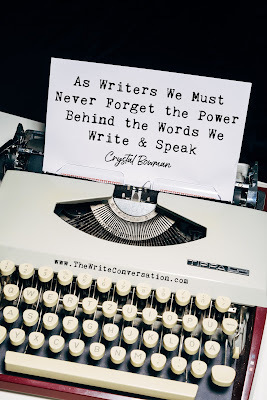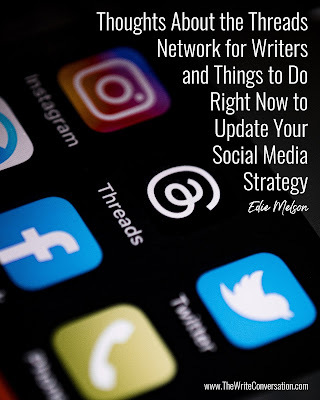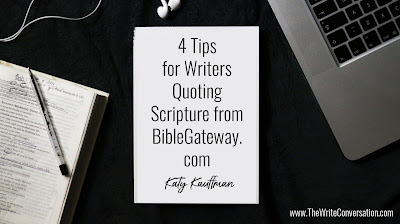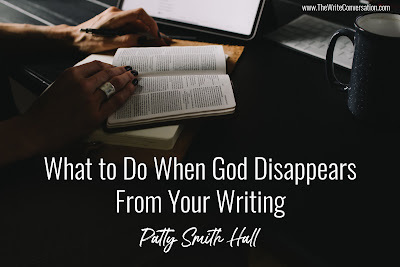Edie Melson's Blog, page 82
July 21, 2023
10 Key Questions to Help Writers Flesh out the Story ARC

by Zena Dell Lowe @ZenaDellLowe
Recently, as I was puttering around on Twitter, I ran across several tweets from writers to the writing community, asking specific questions about their MC's. These questions ranged through a variety of topics: "What did your MC have for breakfast?" "Did your MC have a pet as a child?" "How old was your MC when he/she had their first kiss?"
If these types of questions help you, if this gets your creative juices flowing, then, by all means, keep asking these types of questions. There is no one right way to do this, after all. The acid test is, “Does it work?” So again, if this helps you, keep doing it. That said, unless these questions specifically play into the narrative in some way (i.e., unless your MC suddenly gets food poisoning because of what he/she had for breakfast), then it is my strong opinion that questions like these are a waste of time. That doesn't mean you shouldn't be asking questions, but you'll save yourself a lot of time and energy if you learn to ask the right ones. The right questions are those that matter—the ones that play into the narrative—things that are important for the story NOW. If you don't know which questions to ask, I've got you covered.
Flesh Out Your Story ARC with These 10 Key Questions
1. WHO is the main character? I don’t mean their name. I mean, who are they really? Who are they at their core? What kind of person are they? What are they basically like? Also, are they sympathetic, likable, or intriguing? Why? What makes them fall into which category? And for the bonus, how do you know this? I.e., What actions or behaviors do they display that cause you to come to this conclusion, or what sorts of behaviors will they display in the story to help the audience see them this way?
2. What does he/she WANT at the beginning of the story? Remember, even before the inciting incident, your character must ALREADY BE PURSUING A GOAL. There's something they want when the story starts. The main character is already in action. So, what are they working to achieve, or what goal are they chasing when the story opens, and WHY do they want it? What do they think they will gain by achieving it?
3. What does he/she NEED? Inevitably, every character has some kind of emotional need that drives them. What is their fatal flaw, wound, blind-spot, trauma, or emotional need that makes them want what they want in the first place? What do they need to overcome to get it? Or to become the person they were always meant to become? What’s holding them back internally?
4. What is the INCITING INCIDENT of the story? What happens that launches the main character on his/her adventure? What sets them off in their new direction? Remember, the inciting incident gives the MC a new goal. Something BIG must happen that sends them off in this new direction.
5. What does he/she WANT now? As a result of the inciting incident, your character now has a new goal to pursue. This is the meta goal that must sustain your character for the entire rest of the story, and it needs to be clear and tangible (at least to you). So, the inciting incident gives the character this new goal that they must pursue relentlessly for the entire rest of the story. WHY? What does it matter? What’s at stake? What happens if they win or fail? Story stakes should always be life or death, even if the death is figurative.
6. What are the three first steps the character would logically take to pursue their goal? Once your main character is given a clear objective, they must take logical action to pursue it. By logical, I mean it should be reasonable and follow some kind of suitable order. If their goal is to win some big dancing contest but they don't know how to dance, then it would be illogical for them to start selling tickets to the big show. First, they better learn how to dance. So, what is the most logical step for them to take to accomplish that part of the goal? The goal they are given by the inciting incident should be so clear that the character takes specific, logical steps to pursue it in an appropriate and reasonable order.
7. How does the character change over the course of the telling? Every character starts out being one type of person, but by the end, they’ve changed, for better or worse, because of the adventure they’ve been on. So, how will your character change? What will be different about him/her by the time the story comes to an end? How will they have changed or grown over the course of the story? What is their basic arc? Also, for the bonus, identify any moments in the story that will nudge them towards that end “being”—moments when they move closer to becoming the person they need to be by the end.
8. Who are the supporting characters in your story, what do THEY want, and how do they help or hinder? Writers often provide archetypical characters to assist the MC's journey without giving these characters a life of their own. This is a mistake. Good stories are those where the supporting characters don't exist solely for the MC's benefit. These people may help or hinder your MC, but the key is they each must be pursuing their own goals, which will either clash or mesh with your MC's goals. Only when the supporting characters have their own lives will your scenes be dynamic and interesting. So, spend some time thinking through your cast of supporting characters, who they are to the main character and what they want for themselves.
9. What are the "rules" of your story universe? I'm not talking about things like mythology or magic, although certainly that if you're writing fantasy or sci-fi. But all stories have their own "rules" to follow. If you're writing an inner-city drama about an art teacher struggling to teach her students to paint, then the rules might be that there's no money budgeted for the program and no support from administrators, and this becomes an obstacle he/she must overcome. Figure out what the situation is for the characters in that world, too. (I.e., What's happening to the students because they have no art program, and what does this teacher believe art has the power to do?). These are the story world “rules” that must be conveyed early in the story so that we know what's really at stake and why.
10. How does it end? You may not know all the details about the ending, but in general, you need some idea as to how the story will wrap up. Will your character win or fail? And in general, HOW will the events culminate in the climax? Again, you won’t know all the nuances as to how you'll get there, but you need to know the basic direction you're heading. Without this compass, stories drift aimlessly without purpose. So, you should have some basic idea as to how this whole thing ends, even before you sit down to write.
When I can confidently answer these ten questions, I know I'm well on my way to being able to flesh out a great story, and I can proceed with the actual writing even though there are plenty of things I still don't know. Hopefully, you find these questions helpful, too. If you need clarity on anything, or if I can be of service, please reach out to me at the storytellersmission.com.
TWEETABLE10 Key Questions to Help Writers Flesh out the Story ARC from @ZenaDellLowe on @EdieMelson (Click to Tweet)
 Zena has worked professionally in the entertainment industry for over 20 years as a writer, producer, director, actress, and story consultant. Zena also teaches advanced classes on writing all over the country. As a writer, Zena has won numerous awards for her work. She also has several feature film projects in development through her independent production company, Mission Ranch Films. In addition to her work as a filmmaker, Zena launched The Storyteller’s Mission with Zena Dell Lowe, a podcast designed to serve the whole artist, not just focus on craft. In 2021, Zena launched The Storyteller’s Mission Online Platform, where she offers advanced classes and other key services to writers. Zena loves story and loves to support storytellers. Her passion is to equip artists of all levels to achieve excellence at their craft, so that they will truly have everything they need to change the world for the better through story.
Zena has worked professionally in the entertainment industry for over 20 years as a writer, producer, director, actress, and story consultant. Zena also teaches advanced classes on writing all over the country. As a writer, Zena has won numerous awards for her work. She also has several feature film projects in development through her independent production company, Mission Ranch Films. In addition to her work as a filmmaker, Zena launched The Storyteller’s Mission with Zena Dell Lowe, a podcast designed to serve the whole artist, not just focus on craft. In 2021, Zena launched The Storyteller’s Mission Online Platform, where she offers advanced classes and other key services to writers. Zena loves story and loves to support storytellers. Her passion is to equip artists of all levels to achieve excellence at their craft, so that they will truly have everything they need to change the world for the better through story.To find out more about Zena or her current courses and projects, check out her websites at WWW.MISSIONRANCHFILMS.COM and WWW.THESTORYTELLERSMISSION.COM
Featured Image: Photo by Trent Erwin on Unsplash
Published on July 21, 2023 22:00
July 20, 2023
As Writers We Must Never Forget the Power Behind the Words We Write & Speak

by Crystal Bowman
When I was in the 4th grade, my teacher, Mrs. Beckman, gave the assignment to write a poem about something we enjoyed. I knew right away my poem would be about our summer cottage. And so, I began writing my very first poem: At the cottage, warm and blue, we go swimming two-by-two. I continued writing a few more verses then turned it in at the end of the day.
The next day, I was pleasantly surprised when Mrs. Beckman passed out the poems. I had a big read A on the top of the page. Seeing the A made me smile, but the words Mrs. Beckman spoke planted a seed in my heart. “Crystal, someday you are going to be a poet.”
Years later, after reading Great Expectations in my freshman English class, our teacher gave several options for an assignment based on the book. One of those options was to write a poem, so that was my first choice. My English teacher was a bit surprised when I turned in my Great Expectations poem. I wrote a lengthy summary of the story in rhythm and rhyme. Again, I received a big red A, and my teacher said it was very good.
Two years later in my junior-year literature class, I had another opportunity to write a poem about something I enjoyed. This time, I wrote a poem about being at the beach at Lake Michigan. Using an iambic meter and an a-b-a-b rhyming pattern, I described the sights, sounds, and warmth of a day at the beach. I was eager to get my poem back from my teacher. However, when she passed the poems to the students, she didn’t give one to me. Instead, she asked to see me after class.
“Where did this come from?” she asked. “Did you copy it from a magazine? You are an average student and could not have written this.”
I was in shock as I mumbled a few words to convince her that I wrote the poem, but doubted she believed me. I was thankful I had a study hall next and went to the library and cried. That was the end of my poetry writing for four years.
I’m sharing this story as a reminder of how powerful our words are. The words we speak and the words we write can greatly impact a person’s life.
6 ways our words can affect others:Our words can motivate: Sharing a personal story can motivate some to eat healthier, go back to school, read the Bible, pursue a new hobby, or mend a relationship.Our words can encourage: The right story at the right time can encourage someone who is discouraged. It can give them a positive attitude to keep trying and boost their confidence.Our words can heal and comfort: Articles and devotions with words of comfort and promises from God can bring hope and healing to those who are hurting or grieving.Our words can inspire: Sometimes people need a little inspiration to help them move forward as they begin their day. God can use your words to give that inspiration to those who need to look on the bright side of life. Our words can entertain: We all need an escape from reality now and then. Getting lost in a good novel is therapeutic on many levels, and it’s also entertaining. These stories can make people laugh, cry, get excited, or be scared to death. That’s a lot of word power! Our words can be a blessing: Our spiritual journeys have ups and downs with twists and turns along the way, and God can use our words to bless others. Giving a compliment, a word of praise, writing a thank you note, blog post, and even a Bible verse on Facebook, can be a blessing to someone who needs to hear or read those words.
I’m thankful for the negative experience I had with my literature teacher because it’s a constant reminder to use my words carefully. Whether I write words or speak them, my prayer comes from Psalm 19:14 (NIV), May these words of my mouth and this meditation of my heart be pleasing in your sight, Lord, my Rock and my Redeemer.
TWEETABLEAs Writers We Must Never Forget the Power Behind the Words We Write & Speak from author Crystal Bowman on @EdieMelson (Click to Tweet)
 Crystal Bowman is an award-winning, bestselling author of more than 100 books for children and four nonfiction books for women. She also writes lyrics for children’s piano music and is a monthly contributor to Clubhouse Jr. Magazine. She loves going to schools to teach kids about poetry. She also speaks at MOPS (Mothers of Preschoolers) groups and teaches workshops at writers’ conferences. When she is not writing or speaking, she enjoys going for walks, working out at the gym, and eating ice cream. She and her husband live in Michigan and have seven huggable grandkids.
Crystal Bowman is an award-winning, bestselling author of more than 100 books for children and four nonfiction books for women. She also writes lyrics for children’s piano music and is a monthly contributor to Clubhouse Jr. Magazine. She loves going to schools to teach kids about poetry. She also speaks at MOPS (Mothers of Preschoolers) groups and teaches workshops at writers’ conferences. When she is not writing or speaking, she enjoys going for walks, working out at the gym, and eating ice cream. She and her husband live in Michigan and have seven huggable grandkids. WWW.CRYSTALBOWMAN.COMWWW.FACEBOOK.COM/CRYSTAL.BOWMANWWW.FACEBOOK.COM/CRYSTALJBOWMANWWW.INSTAGRAM.COM/CRYSTALBOWMANAUTHOR
Featured Image: Photo by Markus Winkler on Unsplash
Published on July 20, 2023 22:00
July 19, 2023
Thoughts About the Threads Network for Writers and Things to Do Right Now to Update Your Social Media Strategy

by Edie Melson @EdieMelson
I don't know about you, but it's hot where I live! Along with the heat, the summer slump is happening. For me, that means even though the days are longer, I'm getting less done. There are more family/friend events and I'm just a little less motivated.
One thing I have discovered is this. Summer is a great time for writers to do a little mid-year tweaking to our online strategies. It's also a good time to evaluate how things are going online and adjust for any issues that have appeared.
And it's no secret to anyone in publishing that the world has done some major shifting—particularly in the realm of social media. Facebook has continued to tweak their algorithms and format until nothing looks the same. Twitter has had major crack downs on spam accounts and it looks very different as well. And a little over a week ago, Meta (Facebook) has launched a competitor to Twitter called Threads. There is a LOT of controversy about Threads and I'll be posting some in-depth thoughts on that network in a couple of weeks, but I wanted to give you an overview.
Quick Thoughts on the Thread Network for Writers1. It's been a bumpy start. Threads launched without having a lot of things in place. There's not currently a way to use hashtags or to search for things via topic.
2. There are lots of accusations that may not be true. I've seen multiple emails from sites warning against using the Threads network. These emails claim Threads uses and keeps your financial and health information. They also claim that because Threads is tied to Instagram, deleting your Threads account will delete your Insta account. I have done a LOT of digging and so far . . . I can't find any verification for these accusations. I'm not saying they're not true, just that I can't find anyone who can prove to me that they ARE true. Especially since when you sign up for Threads they specifically say that disabling your Threads account will NOT affect your Insta account. They also didn't ask me for access to financial and/or health info, so I can't figure out how they would get that legally.
My AdviceProceed with care. I have joined the Threads network. And I'm offering my coaching clients the option to hold off joining while I do some in-depth digging to see if I can figure out if any of these concerns are based in fact. I offer you the same option. I'll be posting about Threads on here soon and will give you my honest opinion when they have some time to work the bugs out and I have time to dig deep into the accusations.
So, all things considered, it's definitely time to update your social media strategy.
All these constant changes have many people are scrambling and scurrying. Chasing trends, adding new apps, and swearing off social media completely aren't the best way to deal with these changes. So today I'm going to lay out my strategy in hopes of helping you find a blueprint to follow. It's still a great time to make valuable online connections, we just need to continue to change how we do it. These tips for social media for writers should help you get your online connection plan in tip-top shape.
Things to Give Up There are things we can continue and things we need to let go of. These fall into the latter category.
1. Scheduling Facebook posts through any other third-part application. No, I'm not giving up scheduling altogether, but Facebook has slanted their algorithm to favor posts that are NOT scheduled outside of Facebook. So I'm using Tweetdeck to schedule Twitter and I use my Facebook Professional Page (Meta Business) to schedule Facebook and Twitter.
2. I've cut way back on how many updates I share on Facebook daily. I now concentrate on one or two posts and work on starting—and having—a conversation with what I share.
3. Scheduling repeat tweets. There was a time when we could compose a tweet and release the same update to our twitter followers over a period of days or weeks. No longer. Now twitter isn't allowing this kind of repeated update. It's still fine—and even encouraged—that we retweet content. But repeating original content is no longer allowed.
4. Sharing as many links on Facebook. Another change to the Facebook algorithm is the fact that they want all conversation to stay on Facebook. Because of this, any post with a link that sends people away from Facebook has less visibility. Instead I compose my Facebook updates with conversation starting with text and an image. If the conversation revolves around a specific blog post, I don't put that link in the original update. I wait and post the link in the first comment below the post.
Things to Concentrate On 1. Authentic content that encourages connections. All social media networks are skewing their algorithms to favor anything posted that leads to conversation.
2. Diversification: with all that’s going on in the digital universe we can see the wisdom of not putting all our social media eggs in one basket. Now may be an excellent time to begin experimenting with Pinterest or Instagram or LinkedIn. Remember though, Instagram is owned by Facebook. If you're diversifying by using Facebook and Instagram you're essentially still on only one network. If your Facebook account is shut down, chances are you'll lose your IG account too.
3. Video: We need to be more open about trying new things and new ways to connect. The hottest thing again this year is video, particularly Facebook live. It's time to be brave and begin to venture out of our comfort zone.
4. Blogging: Now more than ever writers need to build a stable digital foundation. Social media networks no longer qualify as stable. Small changes can hold devastating results if that’s our only audience-building strategy. This means we need a viable website or blog. If we only have a website, it’s hard to get it found because of Search Engine Optimization. That’s why blogging is such an important component.
and the two most important things of all...
5. We must remember that social media is not about me or promoting my books or making sales. Social media is about making connections—authentic—relationships. When we truly bring value to the lives of others our numbers will grow.
6. Social media allows us to make a positive difference in the world and I must not grow weary in that purpose. We can reach people and places we'd never have the opportunity to if we were going physically. My personal belief is that I'm called to be used by God to share the love of Christ. Social media allows me to do that in ways never possible before.
It's vital as we become professional writers that we continue to learn and grow—in all aspects of the publishing industry.
What changes have you made in the way you interact on social media? Share your thoughts in the comments section below.
Don't forget to join the conversation!Blessings,Edie
TWEETABLE Thoughts About the Threads Network for Writers and Things to Do Right Now to Update Your Social Media Strategy from @EdieMelson (Click to Tweet)
 Edie Melson is a woman of faith with ink-stained fingers observing life through her camera lens. She’s a writer who feels lost without that device & an unexpected speaker who loves to encourage an audience. She also embraces the ultimate contradiction of being an organized creative. She knows the necessity of Soul Care and leads retreats, conferences & workshops around the world on staying connected to God. Her numerous books, including the award-winning Soul Cares eries & reflect her passion to help others develop the strength of their God-given gifts. Her blog, The Write Conversation is recognized as one of the top 101 industry resources.
Edie Melson is a woman of faith with ink-stained fingers observing life through her camera lens. She’s a writer who feels lost without that device & an unexpected speaker who loves to encourage an audience. She also embraces the ultimate contradiction of being an organized creative. She knows the necessity of Soul Care and leads retreats, conferences & workshops around the world on staying connected to God. Her numerous books, including the award-winning Soul Cares eries & reflect her passion to help others develop the strength of their God-given gifts. Her blog, The Write Conversation is recognized as one of the top 101 industry resources. She and husband Kirk have been married 40+ years and raised three sons. They live in the foothills of the Blue Ridge Mountains and can often be found hiking—with Edie clinging to the edge of a precipice for the perfect camera angle and Kirk patiently carrying her camera bag and tripod. Connect with her on her website, WWW.EDIEMELSON.COM and through social media.
Featured Image: Photo by Dave Adamson on Unsplash
Published on July 19, 2023 22:00
July 18, 2023
4 Tips for Writers Quoting Scripture from BibleGateway.com

by Katy Kauffman @KatyKauffman28
Bible Gateway is an invaluable website for writers who want to quote Scripture. We can simply copy and paste verses from the site into our writing without having to hunt down a physical copy of the translation we want. I use the website or free app nearly every day for my quiet time or writing, and I’ve noticed a few things writers need to remember.
Tips for Using BibleGateway in Your Writing
Tip #1: When you copy and paste verses from the internet, you may bring hidden characters with your text.
When I was working in Microsoft Word one day, I noticed that words in a certain Bible verse looked “clumped” together. There were little spaces between the words as normal, but the justification wasn’t right. A huge gap was at the end of the line when it shouldn’t have been there.
I clicked on the hidden characters button (the backwards P), and I saw little “bubbles” or raised circles between the words of the verse. Sneaky characters. I deleted them and replaced them with normal spaces by using the space bar, and the verse was perfectly spaced and justified.
For some odd reason, these little bubbles can be in between words that come from the internet. It can wreak a little havoc for book and magazine designers. So if you copy and paste Scripture from the internet, please look for these sneaky bubbles.
Tip #2: I discovered Bible Gateway has commentaries that we can use for free.
I often use Online Bible, my computer software, for looking up tidbits of understanding in commentaries. But as I was using Bible Gateway one day, I looked up a passage of Scripture, and clicked on “Read full chapter” right under the verses. This let me see the whole chapter, and in the right-hand side bar, a list of study Bibles, commentaries, and dictionaries appeared.
When I clicked on one of the commentary titles, I could read that book’s entry about the Bible chapter. The site also has Bible dictionaries and maps, but you may need to “upgrade” to Bible Gateway Plus to use some resources.
Tip #3: I can easily compare “gobs” of Bible translations for a verse at once.
Yes, gobs. When I search for a particular verse, it appears with two links below it. One is to read the full chapter in Scripture, and the other is to read the verse “in all English translations.” This helps me to see how various translators interpreted the verse literally or thought-for-thought.
My favorite literal translation is the New King James Version (NKJV). I often read from the New Living Translation (NLT). Once in a while, I might look at the New International Version (NIV) and the English Standard Version (ESV). But when I quote from Scripture, I mostly use the NKJV. Which ones do you like the most?
Tip #4: Use Bible Gateway’s copyright information for each Bible translation, and be sure to check the rules.
The copyright information for Bible translations is conveniently located on each web page for Bible verses. When I quote from a translation, I copy and paste that info onto the copyright page of my books.
It’s also helpful to double-check how much we’re allowed to quote from a translation by looking at the publisher’s website. I can google “copyright permissions” with the translation name, and find guidelines for how much I can quote from that translation.
Guidelines may have changed in recent years, so if it’s been a while since you looked them up, be sure to research your favorite Bible translations and see what’s legal and what’s not.
Some translations allow you to quote up to 500 verses of Scripture or the equivalent of up to a quarter of your total written work.
See what’s considered “gratis use” and what’s not with these links:NKJVESVNIVNASB
Have you discovered the ease of using Bible Gateway to quote Scripture? Which translations do you like to quote the most? Let’s get the conversation started in the comments, and may God bless each time you share His Word with the world.
TWEETABLE4 Tips for Writers Quoting Scripture from BibleGateway.com from @KatyKauffman28 on @EdieMelson (Click to Tweet)
 Katy Kauffman is an award-winning author, an editor of Refresh Bible Study Magazine, and a co-founder of LIGHTHOUSE BIBLE STUDIES. She loves connecting with writers and working alongside them in compilations, such as Feed Your Soul with the Word of God, Collection 1 which is a 2020 Selah Awards finalist. She also enjoys encouraging writers and giving writing tips in her monthly writers’ newsletter called THE LIGHTHOUSE CONNECTION.
Katy Kauffman is an award-winning author, an editor of Refresh Bible Study Magazine, and a co-founder of LIGHTHOUSE BIBLE STUDIES. She loves connecting with writers and working alongside them in compilations, such as Feed Your Soul with the Word of God, Collection 1 which is a 2020 Selah Awards finalist. She also enjoys encouraging writers and giving writing tips in her monthly writers’ newsletter called THE LIGHTHOUSE CONNECTION.In addition to online magazines, Katy’s writing can be found at CBN.COM, thoughts-about-God.com, and three blogs on writing. She loves to spend time with family and friends, create art and make crafts with her group MY ARTSY TRIBE, and tend the garden in the morning sun. She makes her home in a cozy suburb of Atlanta, Georgia. Connect with her on FACEBOOK and TWITTER.
Featured Image: Photo by Jandré van der Walt on Unsplash
Published on July 18, 2023 22:00
July 17, 2023
Take Your Social Media to the Next Level by Evaluating Where You are and Where You Want to Go

by Edie Melson @EdieMelson
When I teach social media, I encourage people to relax and not take on too much at once.So today I want to back up and start at the very beginning. Because social media can reach millions, it’s way too easy to think of it as mass marketing. In reality social media is about one-on-one relationships.
That is the beauty and the dichotomy of the medium. It can be overwhelming—this building relationships with millions—especially when our goal is writing, not advertising. Now the good news: social media is not as difficult as it seems.
It Begins with Community
In many ways, it’s a return to small town thinking. In times past, people patronized merchants because the proprietors were their neighbors or friends. In this day and time, we also find neighbors and friends on Facebook, Twitter and in blogging communities. And those communities are where we need to concentrate our efforts.
It's vitally important to realize that, despite the bad rap it's gotten, social networking and writers are a natural match. Social networking is all about connecting with people through our words—not walking into a room full of strangers, standing on a platform and speaking. We can sit at our desks, write and reach the entire world.
That said, it IS all about connecting with others. If you're NOT willing to be found by others, then the writing industry as it stands today is gonna be tough for you.
Where to Begin
There are two things you need: You’ve got to know where you are.You’ve got to know where you’re going.
You are Here
To evaluate where you are, you need to know your numbers. How many friends/followers do you have on Facebook?How many followers do you have on Twitter?What other social media networks are you a part of? Pinterest, LinkedIn, Instagram, etc. Add those numbers here.
You also need to know where you rank in search engines. Plug your name into Google and see where you are. Do you show up on the first page of a Google search?Plug your name into other search engines (bing.com, ask.com, etc) and see where you show up there, too.Now search your blog name, if it’s different from your name, and see where you show up.Finally, search some of your blog topics. Don’t just search your blog post titles, but the actual topics.
That’s ultimately what we’re shooting for, to be found by topic, not just by someone already knowing our name.
First, we shoot for getting our names high in the search engine rankings. Then when we’re on the Internet map, we increase our visibility by getting known topically.
Plot Your CourseIt’s hard to get somewhere unless we know where we’re going. One of the easiest ways to get somewhere is to follow someone. So for this part, you need to think about two or three people who are where you want to be in the social media universe. Don’t just choose random, well-known people. Put some thought in this and look at people who write things similar to you. You’re going to use their path to success to guide you, so choose well.
Check their Social Media NumbersDo the same things with their names, as you did with yours.Look at their Facebook friends/followers.Check how many followers they have on Twitter.Look at the other social media networks they’re a part of. To do this, visit their websites to see what networks they find important.
Check their Search Engine Ranking
Plug their names into Google and look at what you find.Now do the same thing with other search engines and make note of where they rank.Don’t skimp on the time it takes to do this research. It will give you a good picture of where you are and this will help you figure out where you're going.
I’d love to hear what you found when you followed the suggestions above. I’d also love for you to share your thoughts and questions in the comments section below.
Don’t forget to join the conversation!Blessings,Edie
TWEETABLETake Your Social Media to the Next Level by Evaluating Where You are and Where You Want to Go from @EdieMelson (Click to Tweet)
 Edie Melson is a woman of faith with ink-stained fingers observing life through her camera lens. She’s a writer who feels lost without that device & an unexpected speaker who loves to encourage an audience. She also embraces the ultimate contradiction of being an organized creative. She knows the necessity of Soul Care and leads retreats, conferences & workshops around the world on staying connected to God. Her numerous books, including the award-winning Soul Cares eries & reflect her passion to help others develop the strength of their God-given gifts. Her blog, The Write Conversation is recognized as one of the top 101 industry resources.
Edie Melson is a woman of faith with ink-stained fingers observing life through her camera lens. She’s a writer who feels lost without that device & an unexpected speaker who loves to encourage an audience. She also embraces the ultimate contradiction of being an organized creative. She knows the necessity of Soul Care and leads retreats, conferences & workshops around the world on staying connected to God. Her numerous books, including the award-winning Soul Cares eries & reflect her passion to help others develop the strength of their God-given gifts. Her blog, The Write Conversation is recognized as one of the top 101 industry resources. She and husband Kirk have been married 40+ years and raised three sons. They live in the foothills of the Blue Ridge Mountains and can often be found hiking—with Edie clinging to the edge of a precipice for the perfect camera angle and Kirk patiently carrying her camera bag and tripod. Connect with her on her website, WWW.EDIEMELSON.COM and through social media.
Featured Image: Photo by ANGELA FRANKLIN on Unsplash
Published on July 17, 2023 22:00
July 16, 2023
Five Main Areas To Help Authors Market Their Books

by Karen Whiting @KarenHWhiting
There are many ways and strategies to market, but let’s look at 5 main areas writers can develop. All areas are boosted when you apply SEO (search engine optimization) where you use words or phrases people use when searching for your topic or brand. These areas can overlap or can be used interactively. So, you may write an article or be a guest on a podcast and then post about it on your social media.
Many people build up one area but also work on activities in other areas. At times, such as COVID, it helped to have multiple means of marketing as those who relied heavily on speaking found their normal marketing almost disappeared unless they pivoted and spoke online.
Each method relies on understanding the reader (avitar) and what messages resonate with them. All these methods allow people to follow you and join your email list, if you invite them to join.
5 Areas for Marketing Books
1. Print Activities
Print includes articles you write, one-sheets to advertise speaking, handouts created, and even business cards. These are written materials although many can also be digital (magazines are both print and digital).
Start with a business card and then develop other materials such as postcards and bookmarks to send and handout, as well as tip sheets, and speaker one-sheets.
In addition, write articles and submit them to magazines. Also consider pitching columns to write regularly for the audience. Try to write for magazines that focus on your audience. Write downloadable freebies and tip sheets people can access from your website and print.
2. Speaking Activities
This includes small and large events, courses, workshops, retreats, and even booths at events where you can talk with customers who come to your table. The best ones include a book table for sales. They can be in person or online, but the in-person generally results in more immediate sales.
Start locally at church groups, local meetings, and branch out. Anytime you speak, ask for an endorsement. Use referrals where you ask the meeting planner to recommend you or give you names of a few other meeting planners to contact.
Develop a speaker one-sheet and speaker postcards to send out. Post these on your website. Ask for feedback from your audience. This is best done by filling out a simple form that serves as an entry for a door prize and gives you permission to add them to your email list.
3. Media Interviews and Appearances
Media includes TV, radio, podcasts, YouTube, and even Facebook live. This is where people can listen or watch you talk about a topic generally related to your books or brand.
Start locally by volunteering for media telethons and get to know local media personalities. As you get to know the people you can pitch to be a guest. Another way to break into interviews is to hire a publicist. Check who authors who write in your genre hired.
Develop a one-page press kit to send out and add to your website. The media pages on your website can be longer with links to past interviews, articles, and statistics related to your topic, as well as photos and profiles of you speaking and being on media.
4. Social Media
This includes any online network that allows you to post. The posts can be photos, video, reels, tips, comments, and more. Some limit the length while others do not. Pinterest is a search engines more than social media outlet because they are structured so people can search by a word of phrase to find information they want. Pinterest provides a great showcase for people to find information about your topics and you.
Check what demographics on various social medias to find ones your audience uses. Experiment to find what social media you are comfortable using. Follow best practices for the social media you use, and be consistent. Keep track of what posts elicit the most engagement and do similar ones.
5. Expertise
This is where other people quote you or seek to interview you as an expert in a specific area that can be as general as parenting, marriage, or theology but also as specific as hurricane recovery, step-parenting, or the theology of Paul. It starts with developing a website to showcase your expertise.
Build on your expertise with credentials such as coaching, new books on your topic, interviews, and articles on your topic. Post your expertise on sites such where reports can find you to interview and quote you in articles and books. These include HARO (Help a reporter out) at https://www.helpareporter.com/about/ and a professional network at https://profnet.prnewswire.com/ProfNetHome/What-is-Profnet.aspx
This also includes the newsletter or information sent to your email list. You build your expertise with every email sent. Be sure it is valuable and worth opening.
Developing the areas starts with doing the activities mentioned, taking training in any area you want to grow, and being consistent in what you choose to do.
For the marketing section of proposals and developing a marketing plan, look at each area and list any activities you can do in each area or have experience and promotion success. It can help you organize your marketing ideas and inspire new ones.
TWEETABLEFive Main Areas To Help Authors Market Their Books from @KarenHWhiting on @EdieMelson (Click to Tweet)
 Karen Whiting (WWW.KARENWHITING.COM) is an international speaker, former television host of Puppets on Parade, certified writing and marketing coach, and award-winning author of twenty-seven books for women, children, and families. Her newest book, The Gift of Bread: Recipes for the Heart and the Table reflects her passion for bread and growing up helping at her grandparent’s restaurant. Check out her newest book Growing a Mother’s Heart: Devotions of Faith, Hope, and Love from Mothers Past, Present, and Future. It's full of heartwarming and teary-eyed stories of moms.
Karen Whiting (WWW.KARENWHITING.COM) is an international speaker, former television host of Puppets on Parade, certified writing and marketing coach, and award-winning author of twenty-seven books for women, children, and families. Her newest book, The Gift of Bread: Recipes for the Heart and the Table reflects her passion for bread and growing up helping at her grandparent’s restaurant. Check out her newest book Growing a Mother’s Heart: Devotions of Faith, Hope, and Love from Mothers Past, Present, and Future. It's full of heartwarming and teary-eyed stories of moms.Karen has a heart to grow tomorrow’s wholesome families today. She has written more than eight hundred articles for more than sixty publications and loves to let creativity splash over the pages of what she writes. She writes for Crosswalk. Connect with Karen on Twitter @KarenHWhiting Pinterest KarenWhiting FB KarenHWhiting.
Featured Image: Photo by Jessica Ruscello on Unsplash
Published on July 16, 2023 22:00
July 15, 2023
9 Benefits Found on a Group Writing Retreat

by Tammy Karasek @TickledPinkTam
This year I’ve had several opportunities to join with other writers and go off, away from home, for a writer’s retreat. From the ocean to the mountains, we had a dedicated time to write. All who gathered had different needs for their writer’s getaway, but all desired the focused time for their work.
Each week I also have a pseudo writing retreat as a crew of us meet to put words into our current WIP (Work in Process) for several hours. We have several die-hard crew members, and others join as they can. Again, it’s time focused on a specific project.
The benefits to both of these styles of writer retreats are varied. Schedules and finances may not permit a time away for a few days or a week. It’s helpful to find a location that accommodates the group and split the cost. When that’s not possible, a day retreat can also be beneficial and worth the effort to do.
9 benefits for a writing retreat, no matter which style:
1. Focused Time on a Project
Writers I went with had a specific project or projects they wanted to take the time to narrow in on and do the necessary items to complete it. Maybe not all were at a point of completion, so they set a goal of number of words they wanted to reach before they packed to go home. Often, once back home, a text would ping with the news they’d stayed on task and hit The End.
2. Distraction Free
I know I often get pulled out of my writing zone when I’m at home. Husband is home and makes noise my FOMO (fear of missing out) brain can’t ignore. I remember a call or email I needed to take care of before I started that now decided to nag at me. Or the dog (or cat) decides now would be a perfect time for snuggles—on your lap, or worse, your keyboard. A retreat gives those distractions a break and allows you to stay undeterred from the noises around you. They’re not your noises at this retreat, you don’t need to tend to them.
3. Change of Environment
This is a perk I happen to enjoy while I’m at a retreat. Whether your crew decides on a beach/lake, mountain, or someone’s house as a retreat location, it’s nice to change the view, the location to write in a different chair or table and know you’re not there alone.
4. Refreshment
Whether you decide to stay up late and write if you’re on a roll or rise with the birds and get a great start on that word count, you get to decide. Want to sleep in and get a great night of sleep, you’re in charge of that. You aren’t on anybody else’s schedule. Unless of course, your writing group decided to have a time schedule and do other activities throughout the day. Then again, your attendance may not be mandatory, so do what will help you get your writing goal accomplished.
5. Paid to be There—Make It Productive
I suggest you do all your social media, work projects or any other time-pulls away from your writing before you load your laptop and suitcase into your car. You’ve paid money, no matter the amount, to be there. Make sure it’s a productive time for you. Grab that coveted ROI (return on investment). Do set those minimum and wish-list-sized goals before you leave home. Look at your goal list each night and see what you need to do to feel satisfaction of your money’s worth for the trip.
6. Accountability
If you know you’d like to have accountability while you are away, decide with your friends to have a check-in along the way. Set goals and either write them down, or share on your first night there. Then check on each other’s progress each evening at supper. Be praying for each other as you all work to achieve the writing goals you’ve set for yourselves. Make a game of it, have special chocolate bars for those that meet their goal for the day. My chocolate loving fans have now perked up and are open to the idea of a retreat.
7. Brainstorm Partners
Hello, captain obvious! Where can you find a more perfect place to brainstorm on a spot you’re stuck in on your current project? Or have a new project you’d like feedback on as you begin to plan and plot out the story or project? After supper, have a brainstorm session with whomever may need some extra help.
8. Encouragement
We often read that writers have moments of self-doubt on their writing. We wonder if we’ll ever finish a book or if we’ve got what it takes to succeed in this writer industry. The friends you are there with may have felt the same, reach out and share your doubts and let them offer wisdom and advice of how they’ve overcome those same thoughts. They know what they speak of with this—the ol’ cliché fits: been there, done that.
9. Camaraderie
Good fellowship is had at a retreat that’s for sure. And while folks say that writers can be an odd lot, well, we might resemble that comment. We find humor in the life of a writer that others find—odd. We love to sit together in a restaurant and have a Suspense writer blurt out, “I need a new way to kill off somebody and dispose of the body.” Those of us at the table will jump right in with suggestions without a second thought. Until one of us glances around and notice other tables have eyebrows raised as if thinking, should I box up my food and get out of here?
Other writers get you. Talking about the writer’s life with another writer is good for you. Those of who write know that we spend many hours alone at a keyboard. It’s part of the job. Yet, having a retreat to get away and work with writer friends is as beneficial to your heart as it is to your soul. These are your people. They know the ups and downs of the industry and want to see you succeed, too, and are aware of the hard work that comes with that.
Those are a few of the benefits I can offer you today if you think you might like to gather a few writer friends and get away to write. If you’ve attended one yourself, are there some ideas you’d love to share with the rest of us? Please do so in the comments below, we’d love to try something new on our next retreat.
TWEETABLE 9 Benefits Found on a Group Writing Retreat, from author @TickledPinkTam on @EdieMelson (Click to Tweet)
 Tammy Karasek uses humor and wit to bring joy and hope to every aspect in life. Her past, filled with bullying and criticism from family, drives her passion to encourage and inspire others and give them The Reason to smile. She’s gone from down and defeated to living a “Tickled Pink” life as she believes there’s always a giggle wanting to come out! A writer of Romance—with a splash of sass. She’s also The Launch Team Geek helping authors launch their books and also a Virtual Assistant for several best-selling authors. She is now under contract for her book on Launch Teams due to release Fall 2023. Her work was also published in a Divine Moments Compilation Book—Cool-inary Moments. She’s also the Social Media Manager for the Blue Ridge Mountains Christian Writers Conference, Founding President and current Vice-President of ACFW Upstate SC, and Founding President of Word Weavers Upstate SC. She’s a writing team member for The Write Conversation Blog, Novel Academy, MBT Monday Devotions, The Write Editing and more. Connect with Tammy at HTTPS://WWW.TAMMYKARASEK.COM.
Tammy Karasek uses humor and wit to bring joy and hope to every aspect in life. Her past, filled with bullying and criticism from family, drives her passion to encourage and inspire others and give them The Reason to smile. She’s gone from down and defeated to living a “Tickled Pink” life as she believes there’s always a giggle wanting to come out! A writer of Romance—with a splash of sass. She’s also The Launch Team Geek helping authors launch their books and also a Virtual Assistant for several best-selling authors. She is now under contract for her book on Launch Teams due to release Fall 2023. Her work was also published in a Divine Moments Compilation Book—Cool-inary Moments. She’s also the Social Media Manager for the Blue Ridge Mountains Christian Writers Conference, Founding President and current Vice-President of ACFW Upstate SC, and Founding President of Word Weavers Upstate SC. She’s a writing team member for The Write Conversation Blog, Novel Academy, MBT Monday Devotions, The Write Editing and more. Connect with Tammy at HTTPS://WWW.TAMMYKARASEK.COM.Featured Image: Photo by Toa Heftiba on Unsplash
Published on July 15, 2023 22:00
July 14, 2023
What to Do When God Disappears From Your Writing

by Patty Smith Hall @PattySmithHall
Years ago when I first started writing, there was a sense of excitement down deep in my soul. Household chores were left undone as I spent time at my kitchen table, pen in hand, as I created my first stories. But it wasn’t just the writing that mattered to me. It was the time I spent with God beforehand, reading His Word and writing in my prayer journal that set me on the right course for the rest of my writing time. When I started my days like that, writing became more like an act of worship. Words and phrases I would have never thought of myself seemed to follow from my pen. It was in those moments God taught me things about myself I never would have learned in church.
I sold my first book, then my next. Before I realized it, my days were filled with deadlines, marketing strategies and social media. I’d mumble a few words in prayer rather than spend time in my prayer journal. My focus shifted away from writing with God to meeting my growing obligations. A new contract was a blessing and a curse, and I procrastinated. I gave ‘good enough’ but not my best. By the time I turned in my last book, I sworn I would never write again.
One day recently, I read a little of one of my novellas. As I read, a heavy burden bore down on me as I realized my story was a ‘clean’ romance but not necessarily a Christian romance. Oh, there was a Bible verse or a prayer thrown in for good measure but not a story that pointed to Jesus.
I had to ask myself: When did I leave God out of my writing?
And God answered. He revealed my mistakes to me. How, little by little, my stories weren’t for Him but to please the world. Instead of digging deeper and stretching myself to reveal some hard truths, I’d taken the easy way out. It was a harsh realization, but one I’m determined to correct.
Steps to Ensure I'm Writing With GodRepent: This is the first and most important step. Jehovah God yearns for a relationship with us and unrepentance blocks us from that closeness He (and we!) yearn for. Lay bare your heart to Him, not only your mistakes but your fears going forward, and watch how the Lord responds!Commit the first part of your writing time to reading His Word and praying: Spend time with God whether you’re writing or not. Even if you only have ten minutes, read a devotional and pray. For myself, I like to prayer journal. And don’t just delegate it to one particular time. If you get stuck in a hard scene, stop and pray. The words flow easier if you commit it to God.Pray about every writing decision: Indie or traditional? Pray about it! Career or hobby? Take it to the Lord. New contract? Talk it over with the great I Am. You get the gist.
Always invite God to be front and center in your writing. Look at your writing as a form of worship. Lay open your heart to the truths the Lord will share with you there.
TWEETABLEWhat to Do When God Disappears From Your Writing, insight from @PattySmithHall on @EdieMelson (Click to Tweet)
 Patty Smith Hall is a multi-published author, teacher and encourager to new writersjust starting their journey. A founding member of ACFW, she served on the national board and as a Genesis contest coordinator, and presided as president of her local chapter. As an acquisition editor for Winged Publications, she finds great joy in helping and encouraging others reach their publishing dreams. Married almost 40 years to Danny, she finds great joy in her family, friends, and her relationship with Jesus Christ. You can contact her at www.pattysmithhall.com.
Patty Smith Hall is a multi-published author, teacher and encourager to new writersjust starting their journey. A founding member of ACFW, she served on the national board and as a Genesis contest coordinator, and presided as president of her local chapter. As an acquisition editor for Winged Publications, she finds great joy in helping and encouraging others reach their publishing dreams. Married almost 40 years to Danny, she finds great joy in her family, friends, and her relationship with Jesus Christ. You can contact her at www.pattysmithhall.com.Featured Image: Photo by Kelly Sikkema on Unsplash
Published on July 14, 2023 22:00
July 13, 2023
Diligence About Digital Soul Care is a Critical Part of Life for Writers Today

by Edie Melson @EdieMelson
As writers in this day and time, we combat a specific kind of stress—digital stress. So much of our lives are spent seated at a computer, on the phone or even in digital meetings. Because of that, I've discovered there are certain things I need to build into my life to stay healthy—spiritually, physically, and emotionally. So below are my tips, along with helpful Bible verses for each one, and a short resource section of other places to go for Soul Care.
17 Digital Soul Care Tips for Writers
1. Decide on boundaries, write them down and STICK with them. (Psalm 16:5-6) These are some of mine: My time is no longer driven my phone. I set a time to return text messages, emails and phone calls—and it’s not during lunch or after working hours. I have set office time. And my phone is NOT my office. I don’t work during family time. I am specific with clients on what type of correspondence I expect. For example, while I will answer emergency text messages, all other correspondence should be in email.
2. Weekends off are now the norm, NOT the exception. (Mark 2:27)
3. Learn to limit digital meetings. Zoom Fatigue is a real thing! (Psalm 127:2)
4. Work smarter, not harder when connecting with your audience. (Proverbs 2:11)
5. Families come first. (1 Timothy 3:5)
6. Be aware of the pressure coming at you right now and make your own decisions. (Colossians 2:8)
7. Kick up the volume. I love to play praise music while I work, and at other times. It really refocuses me. (Psalm 71:14)
8. Relationships matter, and beyond that, they need nurturing to survive. (Romans 12:10)
9. Reach out when you’re down. (Ecclesiastes 4:9-10)
10. Field trips are time well spent. (Hebrews 11:3)
11. Mix it up. (Hebrews 10:24-25)
12. Quit judging how you’re doing by what you’re accomplishing. (Mark 6:31)
13. It’s okay (even encouraged) to have hobbies that have NOTHING to do with writing and/or reading. (Ephesians 2:10)
14. Keep moving. (1 Corinthians 6:19-20)
15. Be gentle with yourself. (Luke 12:7)
16. Write it down. Journaling helps me process life. In addition, it gives me good material for future projects. (Matthew 13:52)
17. Seek time apart with God. (Psalm 1:2)
Additional ResourcesDr. Saundra Dalton-Smith: https://ichoosemybestlife.com Susan U. Neal: https://susanuneal.com/healthy-living-blog Cathy Baker: https://www.cathybaker.org Beth Vogt: https://bethvogt.com/blog/ Julie Cameron: https://juliacameronlive.com/blog/ Cynthia Cavanaugh Soul Anchor Podcast: https://cynthiacavanaugh.com/soul-anchor-podcast/Edie Melson: Soul Care for Writers:https://www.amazon.com/Soul-Care-Writers-Edie-Melson/dp/1946708364/
TWEETABLEDiligence About Digital Soul Care is a Critical Part of Life for Writers Today from @EdieMelson (Click to Tweet)
 Edie Melson is a woman of faith with ink-stained fingers observing life through her camera lens. She’s a writer who feels lost without that device & an unexpected speaker who loves to encourage an audience. She also embraces the ultimate contradiction of being an organized creative. She knows the necessity of Soul Care and leads retreats, conferences & workshops around the world on staying connected to God. Her numerous books, including the award-winning Soul Cares eries & reflect her passion to help others develop the strength of their God-given gifts. Her blog, The Write Conversation is recognized as one of the top 101 industry resources.
Edie Melson is a woman of faith with ink-stained fingers observing life through her camera lens. She’s a writer who feels lost without that device & an unexpected speaker who loves to encourage an audience. She also embraces the ultimate contradiction of being an organized creative. She knows the necessity of Soul Care and leads retreats, conferences & workshops around the world on staying connected to God. Her numerous books, including the award-winning Soul Cares eries & reflect her passion to help others develop the strength of their God-given gifts. Her blog, The Write Conversation is recognized as one of the top 101 industry resources. She and husband Kirk have been married 40+ years and raised three sons. They live in the foothills of the Blue Ridge Mountains and can often be found hiking—with Edie clinging to the edge of a precipice for the perfect camera angle and Kirk patiently carrying her camera bag and tripod. Connect with her on her website, WWW.EDIEMELSON.COM and through social media.
Featured Image: Photo by Sayan Majhi on Unsplash
Published on July 13, 2023 22:00
July 12, 2023
Writing Conferences versus Writing Retreats – What’s Your Favorite Writing Get-Away?

by Julie Lavender @JLavenderWrites
Last month, I penned my June column for The Write Conversation shortly after returning from the Blue Ridge Mountains Christian Writers Conference. This month, I’m still enjoying memories of a recent writing retreat, hosted by the publisher for my children’s picture book, releasing in the fall of next year. The first End Game Press Writing Retreat took place in Destin, Florida, and oh my—what beautiful emerald waters and gorgeous white sand!
Have you ever attended a writing retreat? Different from writers’ conferences in so many ways, a writing retreat typically offers less (or no) workshops and more quiet time for brainstorming or writing on that WIP— “work in progress.”
I’ve attended only three writing retreats over the years, the most recent one with End Game Press and two previous smaller ones with my children’s writing group. All three were marvelously productive and beneficial to my writing path.
Let’s compare the characteristics of conferences and retreats to see if one or both might aid your current writing journey.
The biggest difference between a writing conference and a writing retreat is the amount of free time available to work on a current project.
Most conferences squeeze in as many classes and workshops as possible, offering sessions for the beginner to the experienced. The classes are optional, of course, for the attendee, but participants won’t want to miss the vast knowledge, expertise, and experience of writing instructors who serve as faculty at conferences. Many conferences offer extra bonuses of VIP breakfasts and lunches with faculty sharing personal stories of their writing journey. Some of those same conferences also offer “after-hour” sessions with additional teaching workshops.
Like I mentioned—conferees can basically sit under the tutelage of well-versed authors and writers from sunup until way past sundown. The grand lineup of authorities in the industry at a writing conference leaves very little free time that an attendee can devote to writing.
Another huge blessing and opportunity offered at conferences is the act of networking. Meeting editors, agents, published authors, and not-yet-published authors at conferences is often worth the price of admission in and of itself! Those acquaintances who become good friends offer wise advice about writing and publishing. And, sometimes the added bonus is a publishing contract for a book, article, or anthology contribution.
Writing retreats often boast of ample time to spend writing on a current project. That window of time is worked into the schedule, with no classes or workshops offered at the same time to prevent distractions for the writer.
Most retreats have a narrower focus than a conference. For example, an upcoming retreat at Ridgecrest taking place in October focus specifically on novel writing. The Mountainside Novelist Retreat, with a stellar lineup of novelist experts, offers instruction time in the craft of writing, book launches, organization, social media, and marketing, but also sets aside a large portion of time for attendees to devote to private writing.
Other writing retreats throughout the year, across the country, sport a similar schedule.
Writing retreats also encompass small, intimate groups of writers with very specific plans in mind for the time together. Typically, these retreats include a huge amount of the day set aside for individual writing, with late afternoon or evening designated as a time to gather to critique, brainstorm, or share writing goals and accomplishments.
What would help you the most right now with your writing journey, a conference, a retreat, or BOTH! I love conferences and retreats because they serve different, helpful purposes for my writing journey. As for me, I plan to make time for conferences and retreats each year on my calendar.
What about you? Do you attend conferences and retreats? Maybe you’ve even taken a solitary writing retreat, one in which you traveled to a location away from your home to work on or complete a writing project. Share your conference and retreat experiences and join the conversation.
TWEETABLEWriting Conferences versus Writing Retreats – What’s Your Favorite Writing Get-Away? from @JLavenderWrites on @EdieMelson (Click to Tweet)
 Author and journalist Julie Lavender loves writing conferences and writing retreats and believes both have helped her in so many ways along the path to publication. Julie is the author of Children’s Bible Stories for Bedtime (Penguin Random House), 365 Ways to Love Your Child: Turning Little Moments into Lasting Memories (Revell/Baker), a forthcoming mom’s devotional from Penguin Random House, and two picture books from End Game Press and its imprint.
Author and journalist Julie Lavender loves writing conferences and writing retreats and believes both have helped her in so many ways along the path to publication. Julie is the author of Children’s Bible Stories for Bedtime (Penguin Random House), 365 Ways to Love Your Child: Turning Little Moments into Lasting Memories (Revell/Baker), a forthcoming mom’s devotional from Penguin Random House, and two picture books from End Game Press and its imprint.Featured Image: Photo by Trinity Treft on Unsplash
Published on July 12, 2023 22:00



